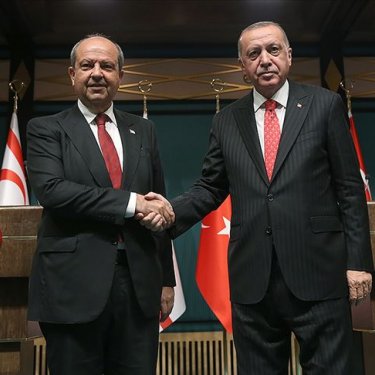Media bill poses major threat to press freedom in northern Cyprus

The administration of the northern part of Cyprus has approved a bill that threatens journalists with arbitrary prosecution under the pretext of tackling online information turmoil. Reporters Without Borders (RSF) urges the local parliament to reject the bill and instead prefer European legislative methods for promoting reliable news and information over the Turkish government’s repressive ones.
The package of legislative amendments published on 20 May by northern Cyprus' executive branch, the council of ministers, could pose a serious threat to press freedom. The proposed amendments to the penal code, the law on “noxious publications” and the law on protecting privacy – which cite the impact of the “penetration of information systems into all areas of our lives” as their grounds – are due to be examined by parliament in June.
Their adoption is liable to result in major problems for local media and journalists. Anyone writing an article with “malicious” intent for a “mass media” outlet could be sentenced to up to five years in prison. “Malicious” intent now has a broader definition, and could include not only “insulting” or inciting “discontent or dissent” towards the president or the state but also “ridiculing” them or questioning the sovereignty of the northern part of Cyprus.
The amendments would also criminalise defaming both northern Cypriot and foreign state officials, publishing “false news” and even just reposting media content that is deemed to be false news.
“The northern Cypriot parliament must reject all of these amendments, which threaten journalists with arbitrary prosecution and self-censorship,” said Pavol Szalai, the head of RSF’s European Union and Balkans desk. “Instead of drawing their inspiration from the repressive measures taken by the Turkish state under President Recep Tayyip Erdogan, the authorities of Northern Cyprus should turn to the European framework for protecting press freedom and promoting reliable news and information, which is now reinforced by new digital services legislation.”
As it stands, the legislation in Northern Cyprus is relatively protective of “mass media” and “information systems,” because they are not named in connection with “malicious intent,” the publication of “false news” by the media is not defined as an offence, and the maximum jail term for “noxious publications” is six months, as against five years in the bill.
Aside from introducing these very draconian provisions, some of the proposed amendments, especially those broadening the scope of “malicious” intent, are very loosely worded. For example, an article could be deemed to be “noxious” because it is ill-intentioned or “incites discontent towards the president.” Judges would have a great deal of leeway in their interpretation of such loose wording. The risk of arbitrary decisions would be great and the law would become unpredictable for those directly affected.
The extension of the concept of “malicious intent” seems to echo article 299 of Turkey’s penal code, under which anyone who insults the president can be given a prison sentence. The European Court of Human Rights ruled in 2021 that this provision violates freedom of expression. The only country recognising the legitimacy of Northern Cyprus as an independent state, Turkey maintains excellent relations with its leader, Ersin Tatar, and may have encouraged the drafting of these amendments in the course of its current negotiations with northern Cyprus' administration with a view to signing a financial agreement between the two territories.
